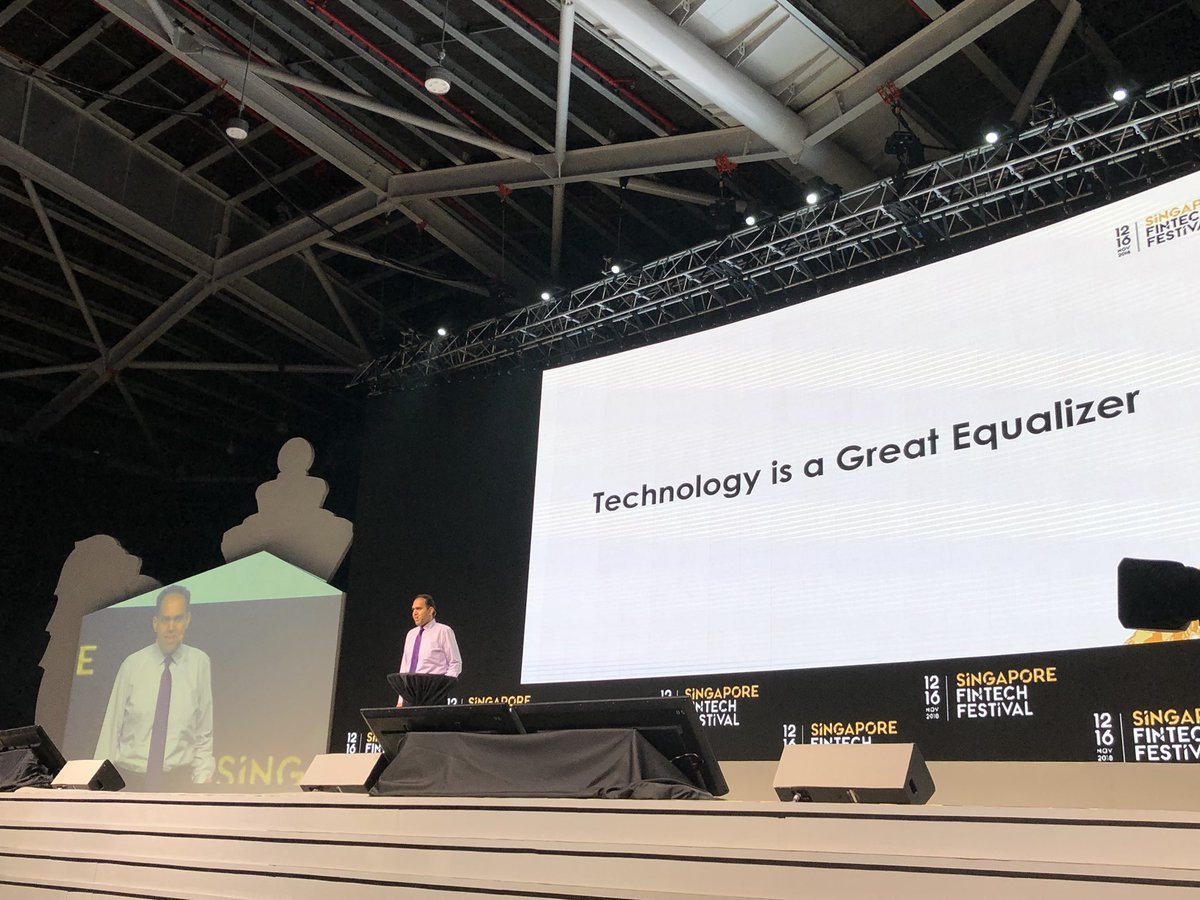“Singapore’s fintech journey is about innovation, inclusion and inspiration. Innovation – because we want to find better ways of doing things. Inclusion – because we want to benefit as many people as possible. Inspiration – because amidst all challenges around us, there is hope in a better world,” said managing director of MAS, Ravi Menon, at the opening of the third Singapore FinTech Festival 2018 today.
Menon also announced that ASEAN Financial innovation Network (AFIN) will also be launching an online fintech marketplace API Exchange (APIX) on Wednesday in a bid to increase financial inclusion in hard-to-reach markets.
AFIN is being spearheaded by the Monetary Authority of Singapore (MAS), the ASEAN Bankers Association, and the World Bank’s International Finance Corporation.
Talking about APIX, Menon said, “It is the world’s first cross-border, open architecture platform to enhance financial inclusion. APIX is both an online FinTech Marketplace and FinTech Sandbox. As a marketplace, it will enable FIs to discover and connect with FinTech firms through APIs on a globally curated platform. As a sandbox, it provides a platform for FIs and FinTech firms to collaborate and experiment on solutions in a contained environment."
He urged the financial institutions to step forward to participate in this exciting enterprise to deepen financial inclusion in ASEAN and the Asia-Pacific region.
He expressed concern over the number of unbanked persons globally and said, “There are about 1.7 billion adults globally who are unbanked, and one in three of them come from four countries in Asia – China, India, Pakistan and Indonesia.”
Elaborating the need for fintech ecosystem, the veteran banker said, “We need a FinTech ecosystem. We need common standards, open architecture, and inter-operable infrastructure. We need collaboration across government, financial industry, research institutions, and the FinTech community at large. We need a free flow of ideas, knowledge, investment, people.”
Speaking about the six components of fintech ecosystem on which the financial institutions are working, Ravi Menon, said, “First, people. Without people – their skills, their energy, and their enterprise – there is no FinTech. Second, identity. Establishing who we are dealing with and authenticating information about that person is the first step in any digital transaction. Third, payments- swift, secure, and seamless payments are fundamental to a digital economy. Fourth, data governance- we must ensure the responsible use of data and seamless and secure flow of data. Fifth-applied research – we need to build strong capabilities in FinTech-related research directed at solving real-world problems. Sixth – platforms for innovation -we need mechanisms to foster collaboration and co-creation .. to translate ideas into products; bridge problems with solutions.”
Giving a fillip to innovations and patents in the field of fintech, Ravi Menon said, “And earlier this year, the Intellectual Property Office of Singapore established a FinTech Fast Track initiative for patents. Under the Fast Track, FinTech patents can be granted in as quickly as six months, compared to the industry convention which can be up to two years. Once patented in Singapore, applicants can leverage on our global patent highways to expedite the registration of their patents in more than 30 overseas markets.”
Meanwhile, MAS has also released a set of principles to promote fairness, ethics, accountability and transparency (FEAT) in the use of artificial intelligence (AI) and data analytics.
“This is the first of its kind in the world – where regulator and industry have come together to set guidance on the responsible use of AI and data analytics,” said Menon.
"This will be a living document that will continue to be modified as we learn more."
Menon also announced other initiatives to boost small and medium-sized enterprises (SMEs).
The MAS and the Government Technology Agency of Singapore are working with industry to facilitate financial institutions’ credit assessment of SMEs using trusted government data.
Currently, young SMEs face difficulties in obtaining bank financing due to a lack of credit history.
The MAS plans to pool data from trusted government sources on the business and key individuals of the SMEs to facilitate informed credit assessment. A pilot with three banks will run in the first half of 2019.
In the Singapore Fintech Festival, about 40,000 participants from more than 100 countries will be attending the festival making it the biggest gathering of the global fintech community.






